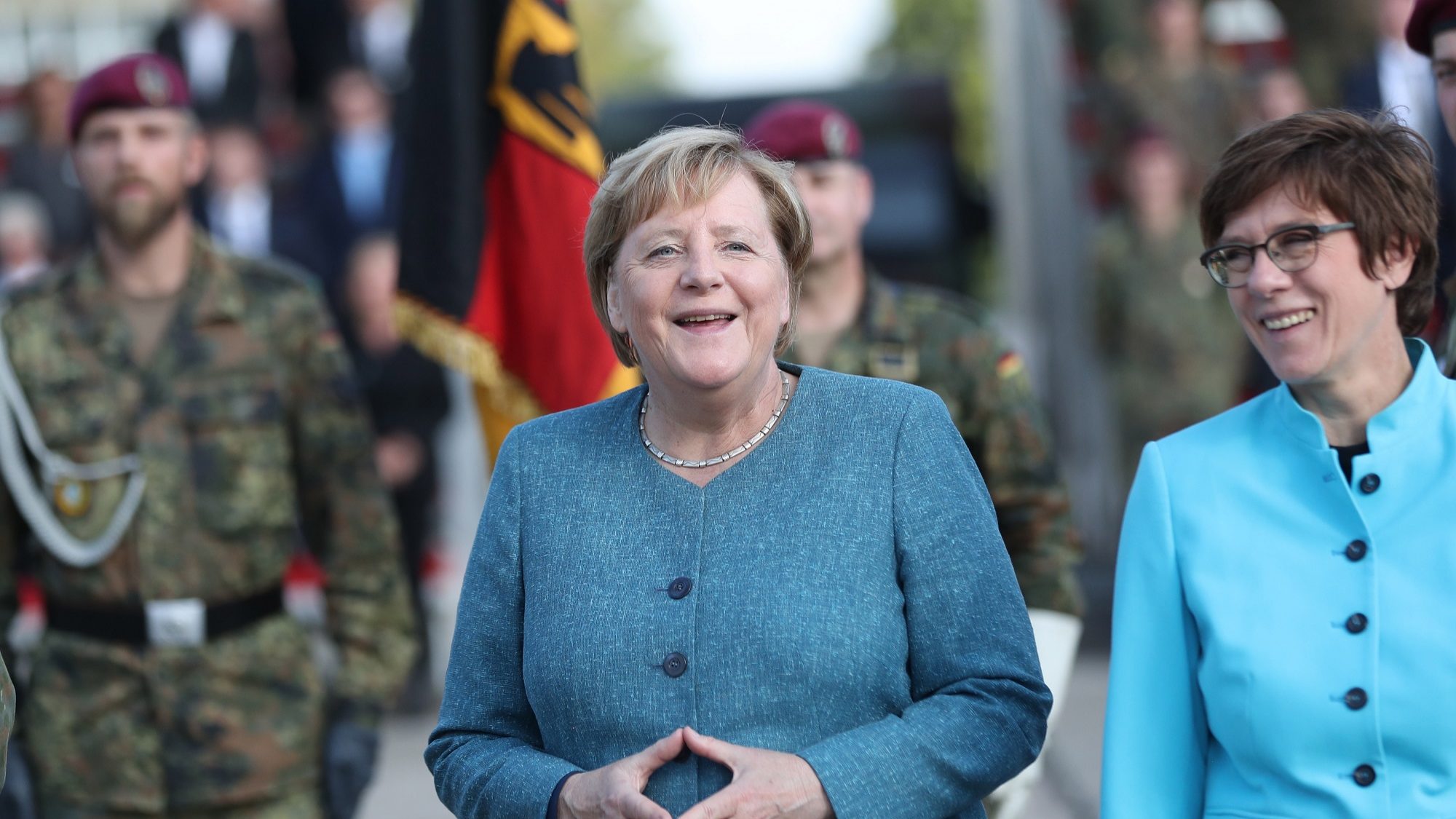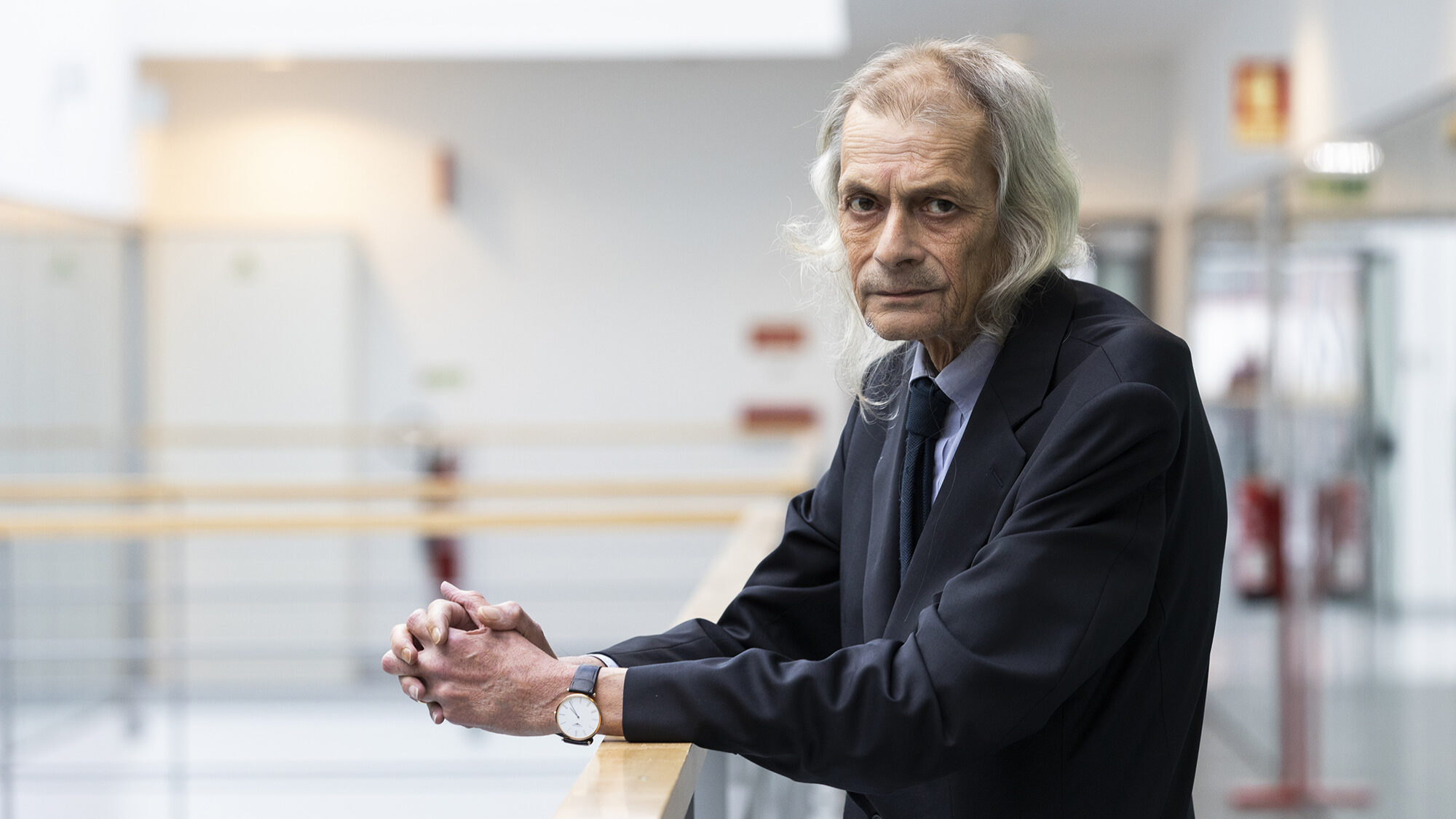Merkel stresses importance of science on climate change, biodiversity
we have to fight climate change, but we also have to protect plants and animals, with the human being as part of this ecosystem and not as someone who is above," said Angela Merkel.
Former German Chancellor Angela Merkel on Thursday highlighted the urgency of fighting climate change and biodiversity loss for the survival of humanity and stressed the importance of the contribution of science, at a news conference to announce the winners of the Calouste Gulbenkian Foundation’s Prize for Humanity, for whose jury she is president.
“One thing is clear: we have to fight climate change, but we also have to protect plants and animals, with the human being as part of this ecosystem and not as someone who is above,” said Merkel, after announcing the winners – two intergovernmental organisations dedicated to producing scientific knowledge and supporting decision-makers in the fight against climate change and biodiversity loss.
The Intergovernmental Science-Policy Platform on Biodiversity and Ecosystem Services (IPBES) and the Intergovernmental Panel on Climate Change (IPCC) are the joint winners of this third Prize, worth €1 million.
Merkel, who has been president of the jury since September, succeeding the late former president of Portugal, Jorge Sampaio, noted that climate change and biodiversity loss are two simultaneous and related crises, whose combat is, she said, “essential for the survival of humanity”.
Highlighting the work of the two prize-winning organisations and their contribution to governments’ decision-making, Merkel also stressed that both the IPCC and IPBES “are drawing up a scientific basis for the survival of humanity” amid the multiple crises.
“Scientific information over the years has become much clearer and more reliable, but unfortunately there has never been good news,” she said, warning that “the signs are increasingly dramatic” and calling on policy makers and civil society to act .
Recalling that she only took over as president of the jury after the winners had already been chosen by the other members, Merkel said that the choice was a very good one, because scientific information should be the basis for political decisions.
On behalf of the IPCC, its president, Hoesung Lee, welcomed the prize, which he said came “at a critical time” when “the impacts and risks (of climate change) are increasingly complex and difficult to manage” – something that the organisation’s reports prove.
“Any delay or failure to organise global, concerted and collective climate action will only shorten the time period to secure the future,” he warned, stressing also that “science is one of the most important instruments” in this fight and that the Gulbenkian Prize for Humanity, which will help fund IPCC grants, represents an “important recognition and incentive”.
In comments to journalists, the IPCC president also commented on the impact of the war in Ukraine on the fight against climate change, stating that the goals under the Paris Agreement – namely the limit on the increase in global average temperature – had not changed and so “if we increase emissions now, we will have to reduce them much faster in the future.
“That’s what the science says and that’s what nature demands of us, we have to make a choice,” he said.
For her part, the IPBES executive secretary, Anne Larigauderie, said that the awarding of the joint prize to that organisation is also a recognition of the importance of biodiversity, pointing out that according to a 2019 assessment, around 1 million out of 8 million species of plants and animals are under threat of extinction.
“Never before have ecosystems been at such a level of degradation and been so much at risk as they are now and that is due to the actions of humans,” she said, highlighting also nature’s potential in combating climate change – one of the reasons why the IPBES and the IPCC have begun working together.
Questioned about the lack of a response from governments that actually meets the challenge posed by the climate emergency, Larigauderie underscored the role of science, arguing that the goal is that “with more evidence, we can accelerate action to solve the problems related to the loss of diversity and climate change.”
The Gulbenkian Prize for Humanity will be formally awarded by the president of the jury, Angela Merkel, at a ceremony to be held later on Thursday, starting at 6 p.m. local time at the Gulbenkian Foundation in Lisbon.
Last year, the award was given to the Global Covenant of Mayors for Climate & Energy, an alliance of over 10,600 cities and local governments from 140 countries. In 2020, its first year, it was given to Swedish activist Greta Thunberg.


